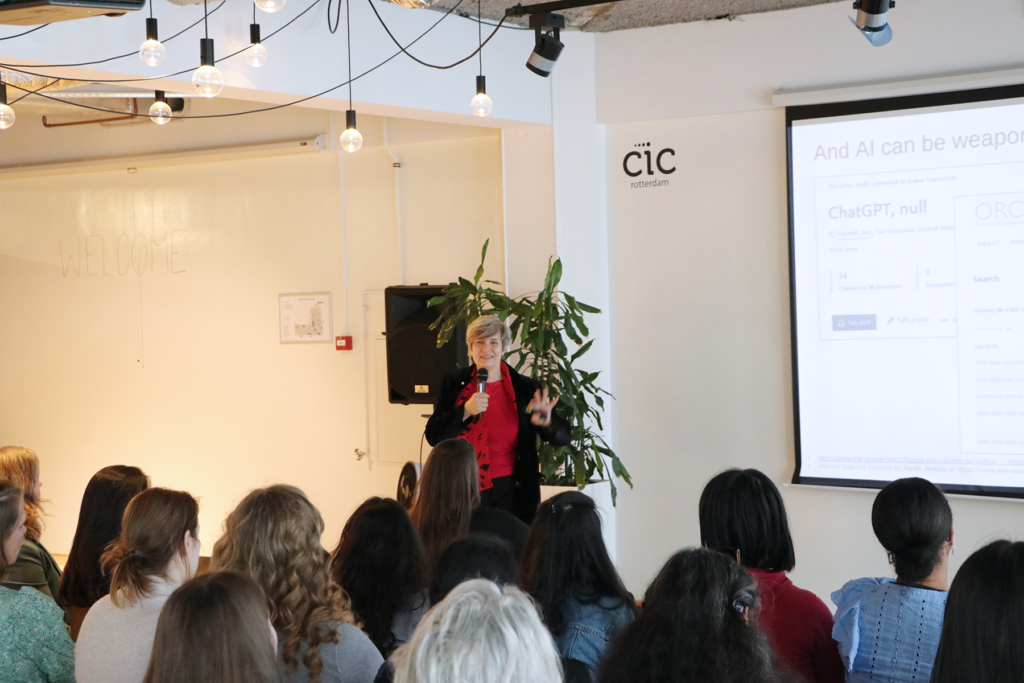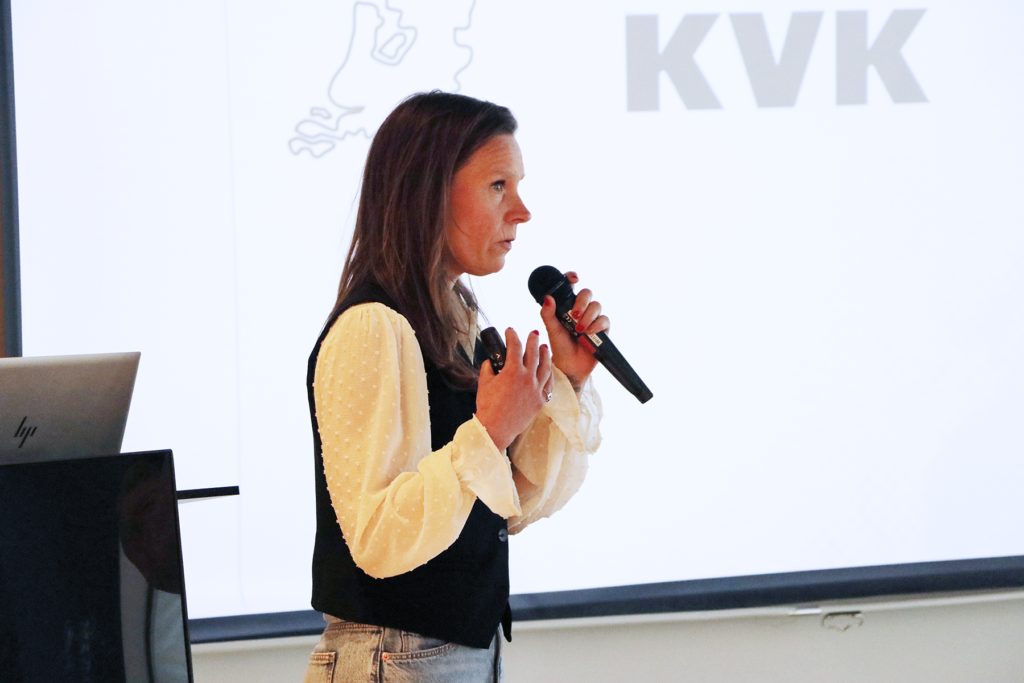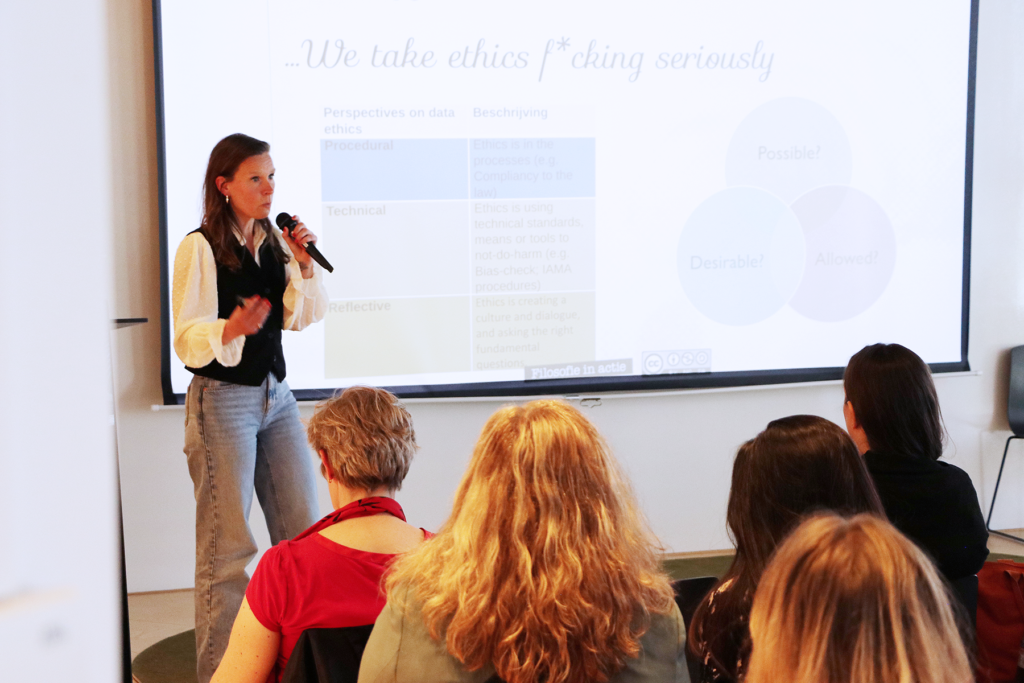
Exploring Data Ethics and Technology: Insights from Piek Knijff and Anita de Waard
June 11th was the kick-off of our first Rotterdam Women in AI Circle event. During this event we had the pleasure of hearing from two influential voices in the field of data ethics and technology: Piek Knijff, a philosopher and data ethicist, and Anita de Waard, a renowned researcher and academic. Their talks provided deep insights into the ethical implications of data use and the evolving landscape of technology.
Author: Ingrid van Heuven van Staereling.
Anita de Waard: The Evolving Landscape of Technology and Data
First off, Anita de Waard, who is a prominent researcher and academic, shared her insights at the event. Her talk focused on the evolving landscape of technology and data, and the ethical considerations that come with it.

Integration of Technology and Data Ethics
Anita highlighted the rapid advancements in technology and the increasing integration of data in various sectors. She discussed the ethical implications of these developments, emphasizing the need for continuous evaluation and adaptation of ethical frameworks. Anita stressed the importance of an interdisciplinary approach when it comes to data ethics. She advocated for collaboration between technologists, ethicists, and policymakers to address the complex ethical issues that arise with technological advancements.
Looking ahead, Anita discussed the potential for new ethical challenges as technology continues to evolve. She called for ongoing research and dialogue to anticipate and address these challenges proactively.
Piek Knijff: Bridging Philosophy and Data Ethics
Piek Knijff, the director of ‘Filosofie in actie’, has been a pioneer in integrating philosophy with data ethics since 2013. Her work aims to bridge the gap between academic philosophy and professional practice, focusing on the ethical use of technology, data, and algorithms in organizations.
Complexity and Translation of Data
Piek began her talk by emphasizing the complexity of reality and the challenges of translating this complexity into data. She explained that when data and algorithms attempt to simplify our multifaceted world, biases and misrepresentations can occur. This raises significant ethical questions about who is responsible for these translations and how they are made. She stressed the importance of recognizing the subjective nature of data categorization and the potential flaws it introduces.

A Framework for Data Ethics
Piek introduced a practical framework for addressing data ethics, centered around three critical questions:
Is it possible?
Evaluating the technical feasibility and limitations of data and algorithms.
Is it allowed?
Ensuring compliance with legal and regulatory standards.
Is it desirable?
Considering the broader ethical implications and desirability of data practices.
This framework helps organizations navigate the complex ethical landscape of data use, guiding them to make responsible and informed decisions.

Ethical Perspectives
Piek identified three perspectives on data ethics:
Procedural Perspective
Following established rules and procedures.
Technical Perspective
Using advanced tools and methods to ensure ethical data use.
Reflective Perspective
Fostering a culture of ethical dialogue and questioning.
She argued that while the procedural and technical perspectives are important, a reflective approach is essential for truly ethical data practices. This involves continuous ethical conversations and creating an organizational culture that prioritizes ethical considerations.
Practical Applications and Challenges
Piek shared examples of her work with organizations, such as the Chamber of Commerce and various government bodies, to implement ethical data practices. She highlighted the importance of practical ethics, not just theoretical discussions. One notable project involved helping the Chamber of Commerce address ethical issues after receiving the Big Brother Award in 2019 for data privacy concerns.
Despite these successes, Piek pointed out ongoing challenges, such as ensuring data quality and inclusivity in ethical committees. She emphasized the need to revisit fundamental questions about the role and production of data before diving into AI ethics.
The talks by Piek Knijff and Anita Anita at the Women in AI Circle event underscored the critical importance of data ethics in our increasingly digital world. Knijff’s practical framework and reflective approach provide valuable guidance for organizations seeking to navigate the ethical landscape of data use. Meanwhile, Anita’s emphasis on interdisciplinary collaboration highlights the need for diverse perspectives in addressing the ethical implications of technological advancements.
As we move forward, it is essential to continue fostering ethical conversations and creating a culture that prioritizes responsible and informed data practices. By doing so, we can ensure that technology serves to enhance our world ethically and equitably.